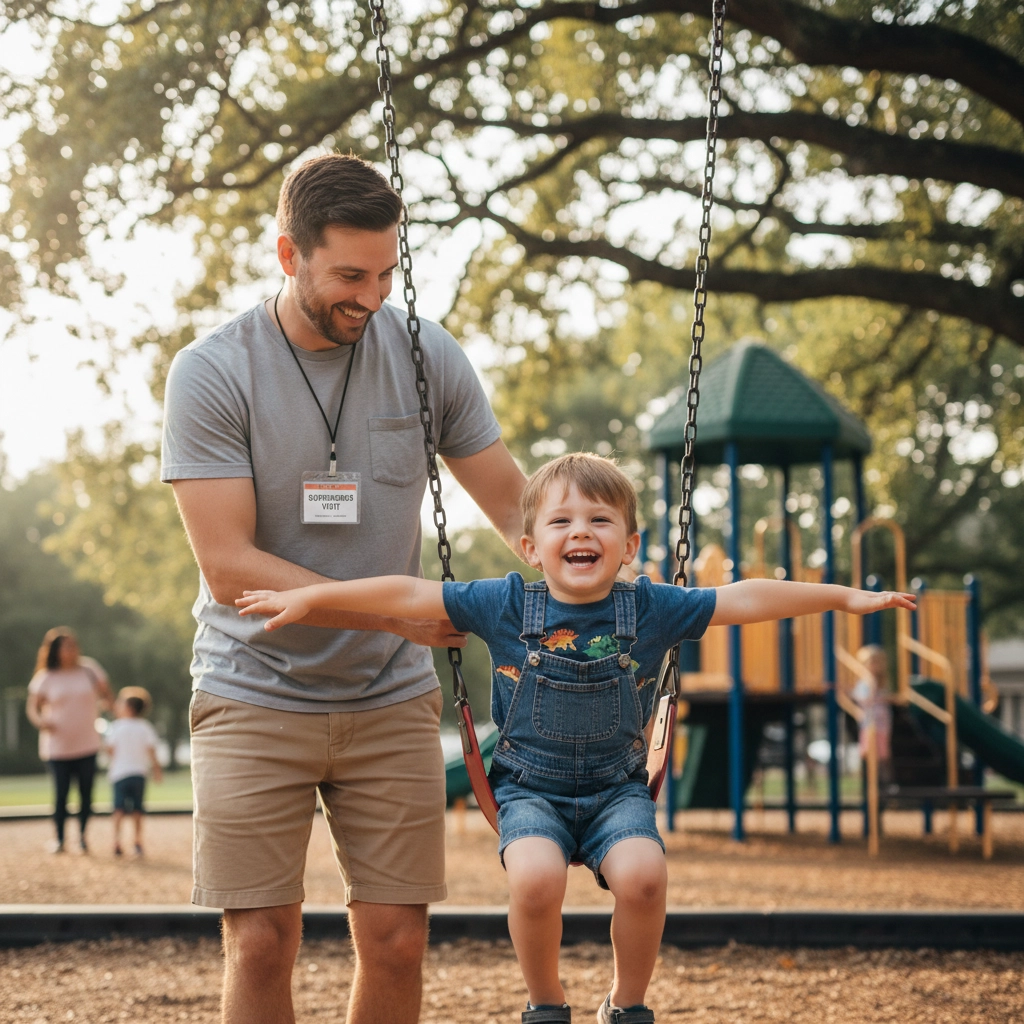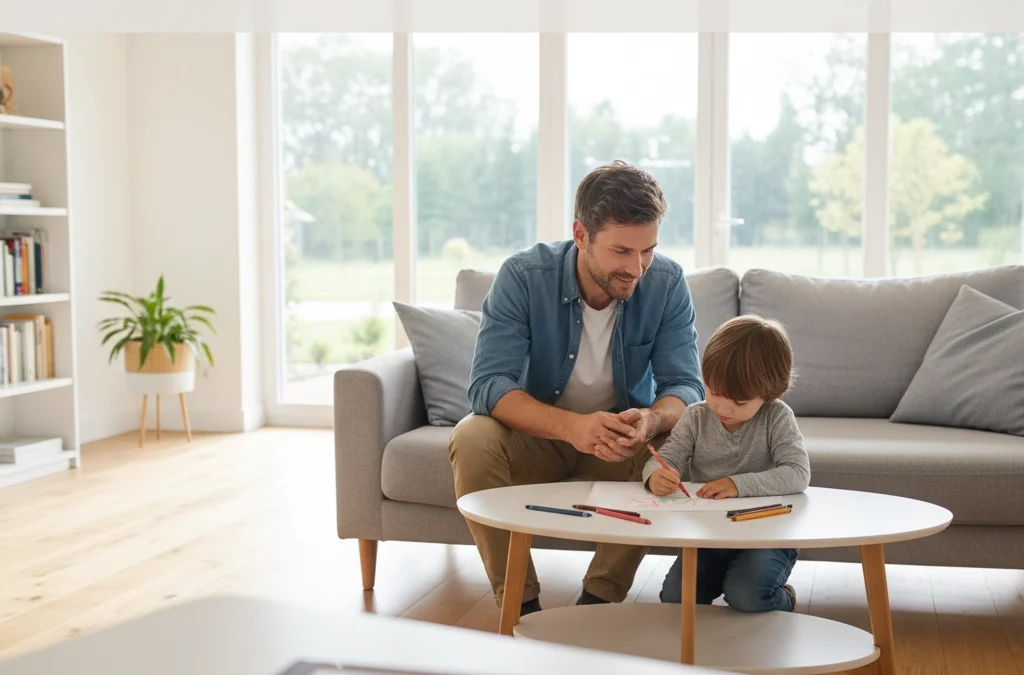Fathers United. Rights Respected. When family relationships break down and violence has occurred, understanding the difference between situational couple violence and systematic abuse could be the key to protecting your parental rights. If you're a dad navigating the complex world of private family law after incidents of violence, this guide will empower you with the knowledge you need to fight for your relationship with your children.
Every Dad Matters. Your story matters. Your relationship with your children matters. And most importantly, understanding what really happened in your relationship could make all the difference in your family court proceedings.
What is Situational Couple Violence?
Situational couple violence represents the most common form of intimate partner violence in relationships, and it's fundamentally different from the controlling, systematic abuse that family courts typically associate with domestic violence cases.
Unlike coercive control or intimate terrorism, situational couple violence occurs when conflicts escalate into physical aggression during heated moments. This isn't about one partner systematically controlling the other: it's about two people whose relationship deteriorated to the point where arguments became physical.
Key characteristics that define situational couple violence:
- Bi-directional violence: Both partners may engage in physical aggression
- Lower intensity: Less severe injuries compared to systematic abuse
- Mutual responsibility: Both parties typically acknowledge their role in the violence
- Not about control: The violence isn't used to gain power over your partner
- Situational triggers: Often stems from anger, frustration, or substance use

Research shows that in approximately 40% of situational couple violence cases, only one incident occurs: perhaps a slap or push during a particularly heated argument: after which both parties recognize the severity and no further violence happens.
How This Differs from Coercive Control
Understanding this distinction is crucial for your family law case. Coercive control involves systematic patterns of:
- Monopolizing resources
- Dictating choices and micro-managing behavior
- Using threats and intimidation to compel obedience
- Isolating the victim from support networks
- Economic abuse and financial control
Situational couple violence lacks these controlling patterns. It's more likely to occur in relationships where both partners struggle with communication, anger management, or substance use issues.
The Impact on Your Parental Rights
Here's the reality: Any history of domestic violence: even situational: becomes a serious consideration in family court proceedings. Judges prioritize child safety above all else, and they won't take risks when it comes to protecting children.
However, the distinction between situational violence and systematic abuse can significantly affect your case outcomes.
Legal and Physical Custody Considerations
Legal custody (your right to make decisions about your child's health, education, and welfare) and physical custody (where your child lives) can both be affected. But because situational violence differs from coercive control, courts may be more open to:
- Father-child therapeutic interventions
- Graduated contact arrangements
- Supervised visitation as a stepping stone to unsupervised time
- Rehabilitation programs that can restore your full parental rights
Evidence That Matters in Court
Family courts will examine various forms of evidence when assessing your case:
- Police reports and incident records
- Medical documentation of any injuries
- Text messages, emails, and digital communications
- Eyewitness testimony from family, friends, or neighbors
- Prior court findings or protective orders
Your action step: Gather all documentation related to incidents, including your own records of what happened. Don't rely on memory: document everything with dates, times, and circumstances.

Assessment Factors That Determine Your Future Contact
When courts consider whether fathers involved in situational couple violence can maintain or restore custody rights, they'll assess several critical factors:
Questions Courts Ask About You:
- What was the actual nature and severity of the incidents?
- Do you recognize the violence was wrong and accept responsibility?
- What's your current risk for future violence?
- Are you engaged in treatment for mental health or substance abuse?
- What motivates your desire to maintain contact with your children?
- What's your current legal and mental health status?
Questions About Your Children:
- Do your children want to maintain contact with you?
- How do they feel about the incidents that occurred?
- What does their mother think about ongoing contact?
- What would be the therapeutic goals of maintaining the relationship?
Remember: Some fathers may need individual treatment focused on substance use or mental health before father-child intervention becomes appropriate. This isn't a punishment: it's preparation for success.
Your Path to Rehabilitation and Restored Rights
Here's the empowering truth: Unlike cases involving systematic abuse where control patterns are deeply entrenched, fathers involved in situational couple violence often have excellent prospects for maintaining or restoring custody rights.
Steps You Can Take Today:
1. Accept Full Responsibility
Don't minimize what happened or blame your ex-partner. Courts need to see genuine accountability and understanding of how your actions affected everyone involved.
2. Engage in Appropriate Treatment
Whether it's anger management, substance abuse treatment, or mental health counseling, proactive engagement demonstrates your commitment to change.
3. Document Your Progress
Keep records of all therapy sessions, support group meetings, and educational programs you complete. This evidence shows courts you're serious about transformation.
4. Focus on Your Children's Wellbeing
Everything you do should demonstrate that your children's safety and emotional health are your top priorities.

Court-Mandated Requirements You Might Face:
Courts may require you to complete:
- Parenting classes focused on conflict resolution
- Individual or family counseling
- Anger management programs
- Substance abuse treatment if applicable
- Supervised visitation periods
Key insight: While loss of custody is rarely permanent, reversal depends on your willingness to engage genuinely with these requirements and demonstrate lasting change.
Navigating Private Family Law Proceedings
In private family law cases involving situational couple violence, you have more control over the process than you might realize. Unlike public law cases where local authorities are involved, private family law allows you and your ex-partner to work toward solutions that prioritize your children's wellbeing.
Working with Legal Professionals
Essential tip: Choose solicitors who understand the distinction between situational violence and coercive control. Not all family lawyers recognize these important differences, and having proper legal representation can significantly impact your case outcomes.
Consider exploring mediation as an alternative to litigation, especially in cases involving situational violence where both parties recognize their responsibility and are committed to co-parenting effectively.
Protecting Against False Narratives
Critical warning: Some abusers attempt to claim "mutual" violence or situational couple violence to minimize their systematic controlling behaviors. Courts are increasingly aware of this tactic, which means you need to be prepared to demonstrate that your case genuinely involves situational violence rather than ongoing control.
Your protection strategy:
- Be completely honest about what happened
- Provide context about the relationship dynamics
- Show evidence of bi-directional conflict, not one-sided control
- Demonstrate genuine remorse and commitment to change

Moving Forward: Your Children Need You
Every Dad Matters. Your children need their father in their lives, and situational couple violence doesn't have to end your parental relationship. With proper understanding, genuine accountability, and committed effort toward positive change, you can rebuild and strengthen your bond with your children.
Remember: Courts want to see fathers succeed when it's safe for children. By understanding what situational couple violence really means and taking proactive steps toward rehabilitation, you're positioning yourself for the best possible outcomes in your family law proceedings.
Your Next Steps:
- Assess honestly whether your situation truly involves situational violence or more serious patterns of control
- Seek appropriate help for any underlying issues contributing to conflict
- Document your progress in addressing these challenges
- Work with experienced legal professionals who understand these distinctions
- Focus relentlessly on your children's wellbeing and safety
Fathers United. Rights Respected. You have the power to transform your situation and maintain the precious relationship with your children. Take action today, accept responsibility for your part in what happened, and commit to becoming the father your children deserve.
Your journey toward restored parental rights starts with understanding; and you've taken that crucial first step by reading this guide. Now it's time to put this knowledge into action and fight for your place in your children's lives.

